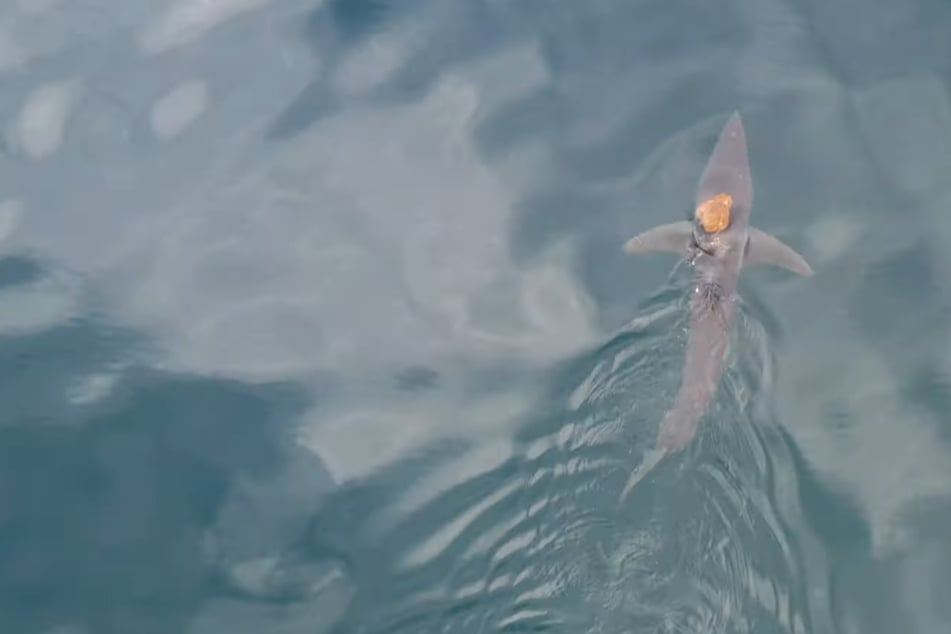Scientists baffled: What is clinging to a shark here?
Kawau Island (New Zealand) - Scientists from New Zealand were out at sea looking for so-called "workups" - feeding frenzies in the open sea. But then they came across a completely unexpected scene that they could not explain.

What they saw was a mako shark with a strange spot on its back, but they couldn't identify exactly what it was, as Oceanographic reports.
They sent a drone out to investigate and it became clear that it was an octopus that had attached itself to one of the fastest predators in the ocean.
"This must have been quite an experience for the octopus, as the fastest shark species in the world can reach speeds of up to 50 kilometers per hour," explained Rochelle Constantine, Professor at the Faculty of Biological Sciences at the University of Auckland.
Why the octopus chose the shark of all things as a means of transportation also remained unclear to the scientists. Normally, octopods tend to stay on the seabed, while mako sharks tend to travel in the upper water layers.
Shark populations are becoming increasingly weaker
The video is intended to amaze viewers, but the researchers also want to draw attention to a serious problem: Shark populations are shrinking dramatically due to overfishing and pollution.
"The encounter with the 'Sharktopus' reminds us of the wonders of the ocean. One of the best things about being a marine scientist is that you never know what you might see next in the ocean. By supporting conservation initiatives, we can help ensure that such extraordinary moments continue to be possible," Constantine concluded.